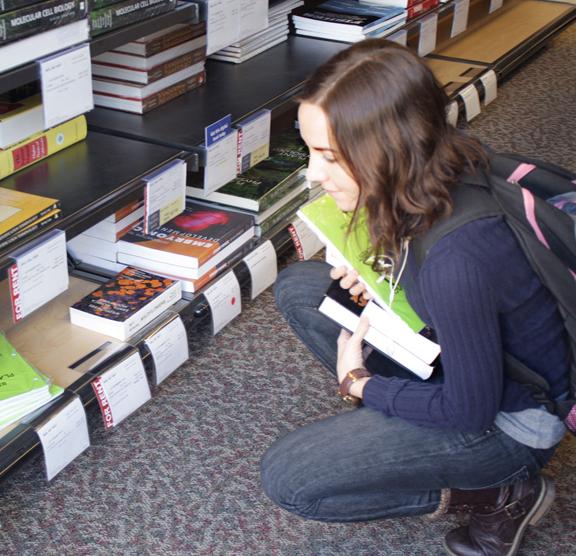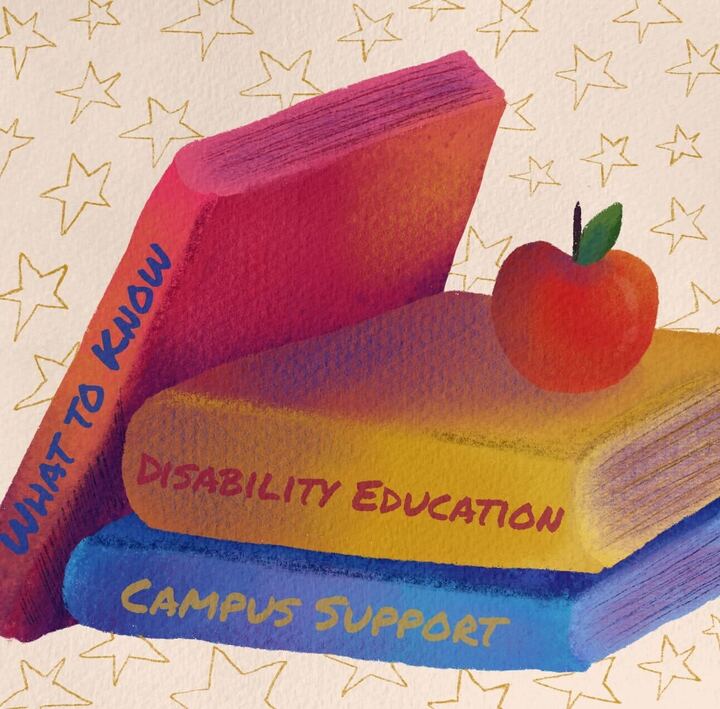
Summer is over, and the fall semester is in full swing.
By this point you’ve waited diligently for your open registration, wore out your mouse button attempting to get your favorite teacher or filling a time slot in your schedule.
Next it’s off to the financial aid office to wait in the line that reminds me vaguely of a scene from BeetleJuice. (If you don’t get the reference ask your parents or older siblings).
Businesses see the beginning of school as opportunity. Parents and students alike, line up in droves to get their hands on bargain deals and stock up on pens and paper.
You’ve met your teachers who will, for the next few months, attempt to saturate your mind with information. They have no doubt given you a syllabus with a portion that tells you the material that you will need for the semester.
This is where students are separated into two groups.
The first group, I fell into when I started going back to college. I figured, well I’m getting money from the government or have accepted loans that were meant to buy books and I’ll haphazardly do so. In my many years in college I’ve paid anywhere from about $15-30 for a used copy of a book all the way up to a couple hundred for a single book. I was leaving the bookstore having spent $500-600 in some cases.
The second group of students have learned from their mistakes and become members of half.com or take advantage of some of the rental opportunities that the bookstore and other businesses offer. Sometimes contacting the professors of your classes in advance and finding out if they accept the use of older editions of books. Some professors will not allow this and demand the new edition even up to the month school starts.
Junior communications student, Dana Allison, has had to put nearly $200 dollars on her credit card; she felt that she got off cheap this semester, saying that previous semesters she’s had to spent anywhere from $50 to $200 for each book. When you’re taking five or six classes, it can get pricey.
Returning graduate student, Claudia Martinez, 2005 CSUN grad, cannot believe the inflated prices of books.
“Books are way too expensive, I’m taking four classes and I know I’d pay $5-600 in the bookstore and If I buy them off campus $3-400,” said Martinez. “I go online, download the syllabus and create a chart where I compare prices so that I get the best deal,”
Most professors have allowed her to use the older versions of the books, according to Martinez, but she has had professors in the past that have made it mandatory to have the most up-to-date edition, when this is the case, her advice is to copy the chapters that you need from a friend.
Dictionary.com defines a monopoly as: exclusive control of a commodity or service in a particular market, or a control that makes possible the manipulation of prices.
I took a health class at a junior college before transferring to CSUN and my teacher was having the students go off campus to purchase a “workbook” that was a printed spiral notebook and in order to pass the class we were forced to write in and tear pages out of it taking the option out of reselling the book.
“I’m not taking away the teacher’s educational hard work put into their title, but a professor that writes their own material and uses it in their own class, I think can lead to a boxed in mindset,” said Allison.
Martinez remembers having a teacher that had written their own book but allowed students to buy older editions. In her opinion, her teacher was more worried about getting students to learn, not the money.
I bring this case up as an extreme example; most professors encourage sharing books or finding the cheapest deal. However I do believe that it is a subject that at some point should be discussed.
Even if the professor is the most groundbreaking and intelligent teaching mind of our time, I still don’t think that it is appropriate for them to make it mandatory for their students to purchase an item that they wrote and are getting royalties from it.
Melanie Williams, who is the department chair of business law at CSUN. According to Williams, the process of assigning books is a decided either by the professor, or the department.
“There’s a cycle for updating textbooks, and I imagine that cycle differs in different areas, in many business books that cycle is about every four years,” said Williams. “There are some topics, where the topic itself is rapidly changing, like computer science, there are topics that don’t change too much; in my department faculty like to keep assigning the old textbooks because the basics are the same.
She explains that there is a limit to how long they can continue to use older books, due to the fact that the bookstore has to be able to get a hold of the book and the publishing company doesn’t continue to publish old books.
The business Law department has created “the textbook affordability initiative”, where the entire department has agreed that for the corps classes, they would only require textbooks that are available in an electronic edition according to Williams.
There currently are no laws against a teacher writing a book and assigning it as mandatory material for their classroom, according to Williams. It is her opinion that there shouldn’t be laws against it, however she thinks that it could create a possibility of a conflict of interest and in those circumstances, she would recommend that royalties received in such a way should be donated to a worthy cause and should receive royalties only from other professors assigning the textbook.






